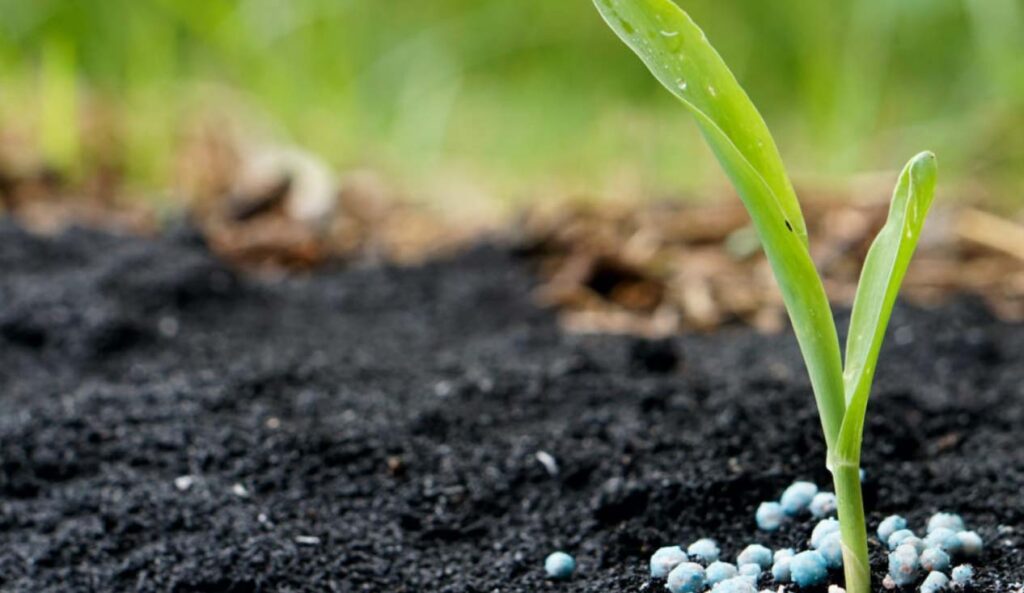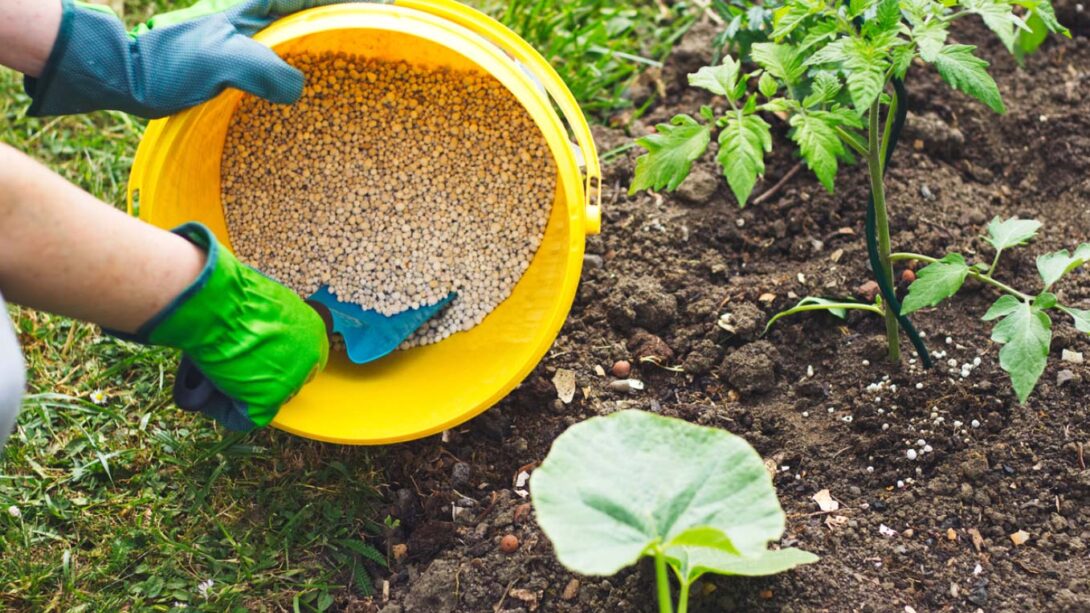After treating your grass, you’re probably going to have some extra lawn fertilizer just hanging around and taking up space. So, you might be thinking that it makes sense to use the extra in your garden, right?
Sure. The question is, though, should you? The answer is, unfortunately, not as clear as we’d like it to be. This is due to the fact that no two fertilizers, people, or situations are the same, which leaves room for there to be two sides to the debate.
- Scotts Turf Builder Lawn Food feeds and strengthens grass to help protect against future problems
- Fertilizer builds strong, deep roots and improves the lawn’s ability to absorb water and nutrients (vs. unfed lawn)
- Apply lawn care product to a wet or dry lawn
- Grass fertilizer works on any grass type
- One 12.5 lb. bag of Scotts Turf Builder Lawn Food covers 5,000 sq. ft.
Today, we’re diving into both sides of the argument and going over a few pros and cons of both using lawn fertilizer for the garden and not using it for the garden.
Lawn Fertilizer for the Garden
Convenient
There’s no doubt about it — using lawn fertilizer for the garden is super convenient. Instead of purchasing separate fertilizer, all you have to do is move from lawn to garden with one product. This means that you won’t have multiple bottles of fertilizer or applicators laying around.
Affordable
Using the same fertilizer for both the lawn and garden is a no-brainer when it comes to saving money because let’s face it, who wants to buy two products when you could get away with using just one? No one!
Stronger solution
Most lawn fertilizers are more concentrated than the average garden fertilizer. This means that you can get away with applying less product less frequently.
Higher risk of burns
When you use lawn fertilizer in the garden, you run the risk of burning your plants. This is because of the compounds in the lawn fertilizer; they are often too strong and concentrated for non-grass flowers to thrive with their application.
Questionable benefits
According to some experts, lawn fertilizer is essentially useless on garden plants. Again, this goes back to the makeup of each lawn fertilizer and the fact that lawn fertilizers are made for grasses, which are more robust and durable than most flowers.
Some gardeners, on the other hand, swear by using lawn fertilizer in both areas.

Avoiding Lawn Fertilizer for the Garden
Guaranteed safety
When you use organic lawn fertilizers in the garden, you might be worried that your edible garden plants will be rendered unsafe for consumption. Using garden fertilizer, however, you can rest assured that the product is safe for your edible plants — and yourself.
Gentler on plants
Garden fertilizer is generally composed with the sensitive nature of the plants it is tailored to in mind. This being said, it’s less concentrated and gentler on both the plants and the soil around them.
More applications
With a formula that is less concentrated, you might need to reapply garden fertilizer more than one to get the desired results. Depending on your schedule and patience, this can be a major problem or simply a small inconvenience.
So, all in all, it’s up to you whether you use lawn fertilizer in your garden or not. There is an overwhelming amount of evidence against and for the idea, so it’s impossible to say for sure which one is the best.




